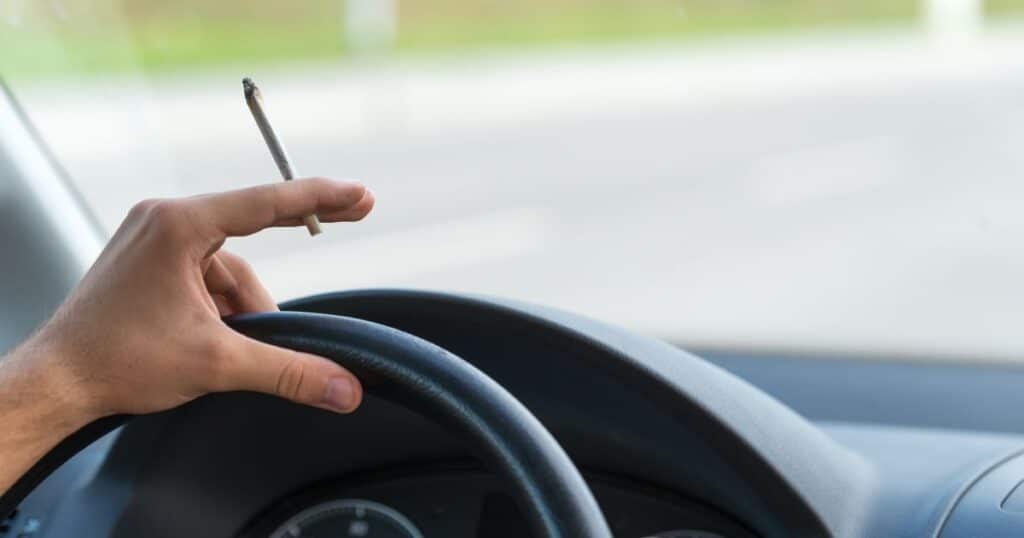As cannabis steadily steps out of the shadows of prohibition, one of the most hotly debated issues is the drug’s impact on road safety. A recent study published in the Journal of the American Medical Association (JAMA) Network Open has sent vibrations through the discourse, challenging the traditional approach to measuring intoxication in cannabis users.
By dissecting the association between THC blood levels and driving performance, the findings echo a call for more intelligent, impairment-based legislation.

A Closer Look at Cannabis and Control: JAMA’s Revelations
Diving into a reservoir of data, the JAMA study took a cohort of regular cannabis users—aged between 65 and 79—and subjected them to a controlled assessment of driving performance. The participants consumed THC-dominant cannabis, which typically leads to higher-than-average blood THC levels, and then navigated a driving simulator.
The results? A discernible increase in weaving and a decrease in speed, remarkably similar to a driver under the influence of alcohol with a blood alcohol concentration of below 0.05 (BAC), which is below the legal limit set at 0.08. (BAC)
What set these findings apart was the discovery that despite these measurable shifts in driving behavior, they bore no direct correlation to the levels of THC detected in the participants’ blood. This revelation is a game-changer, throwing a spotlight on the intricacies of cannabis impairment that standardized tests fail to capture.
Although the study did find very small increases in weaving 30 minutes after consumption, it concludes, “Consistent with emerging data, blood THC level was not correlated with driving behavior.”
The National Organization for the Reform of Marijuana Laws (NORML), long an advocate for fair and rational cannabis policies, swiftly weighed in on the JAMA findings.
The organization’s response underscored what they’d been championed for a long time now, that the inadequacy of THC blood level tests as sole arbiters of impairment is an inconsistent and largely inappropriate indicator of psychomotor impairment in cannabis-consuming subjects, reinforcing the need for more dynamic metrics that capture cognitive and motor decline accurately.
Enter DRUID—Impairment Science, Inc.’s mobile app, which NORML has called for expanded use in their article about the study, uses cutting-edge neuroscience to assess user impairment.
This innovative technology flips the script on traditional methods, offering a real-time evaluation of an individual’s capacity to operate a vehicle. The adoption of such progressive tools by law enforcement agencies could redefine the way we approach DUI arrests and the path to enhanced road safety in a cannabis-legal world.
A Shift in the Policy Paradigm
The lingering question post-JAMA is whether current regulations, which predominantly rely on THC blood tests, accurately reflect driving impairment. The implications of this research reach deep into the heart of policy-making, prompting a reassessment of the legal statutes that base culpability solely on THC levels.
For cannabis enthusiasts, the study’s repercussions highlight the evolving landscape of legislations that govern their usage. As the legal environment for cannabis continues to shift, the importance of a clearheaded understanding of impairment, backed by scientific evidence, cannot be overstated.

Creating sensible cannabis regulations that ensure road safety requires a forward-looking approach. Combining the insights from JAMA with next-generation technologies like DRUID presents a holistic vision—one where impairment is quantified by performance, not presence alone.
In sum, until a perfect yardstick for cannabis impairment emerges, engaging in informed and responsible use remains paramount. As stakeholders from public health, law enforcement, and the cannabis community navigate the complexities of legalization, a confluence of science, technology, and open dialogue will pave the way for a future where the act of driving is as safe as possible, regardless of the substance involved.
This important study serves as a guide in the effort to balance public safety and personal liberty, leading the way to a fair and effective solution. Achieving this solution is not just a task but a shared responsibility that goes beyond societal divisions, requiring a united commitment to creating safe roads for everyone.
Keep updated on all the latest news and updates in the Cannabis industry here at Beard Bros Pharms by signing up for our Friday Sesh Newsletter here. Always Dank and Never Spam!

















